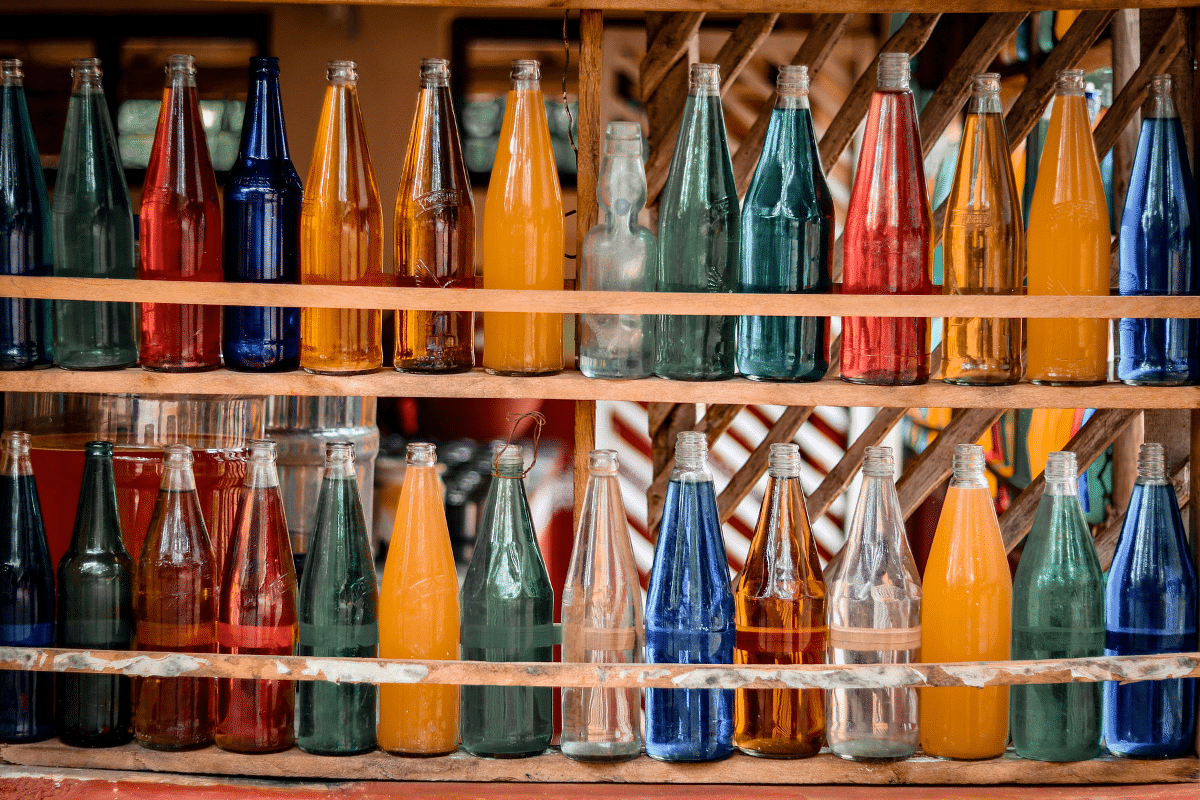News Brief
India’s Non-alcoholic Beverage Market Projected To Reach Rs 1,472 Billion By 2030: ICRIER
- The ICRIER report indicated that the non-alcoholic beverage sector shows enormous potential for developing job opportunities in the country.

Beverages on display in a store in Hubli, Karnataka, India (Photo: Manoj Kulkarni on Unsplash)
India's non-alcoholic beverage market is expected to grow to Rs 1,472 billion by 2030 at a compound annual growth rate (CAGR) of 8.7 per cent, from around Rs 671 billion in 2019, the Indian Council for Research on International Economic Relations (ICRIER) said in a detailed analysis regarding the potential of the sector.
Carbonated soft drinks (CSDs), ready-to-drink teas (RTDs), energy drinks, and sports drinks accounted for more than 60 per cent of the global market. Carbonated beverages are the most popular among Indians, followed by bottled water and fruit beverages and juices.
The report also indicated that the non-alcoholic beverage sector shows enormous potential for developing job opportunities in the country. The total number of jobs produced in 2018-19 was around 691,491, according to the report.
The study found that for every Rs 1 crore of output produced in the non-alcoholic beverage industry, 8.9 more jobs are created in the economy, both directly and indirectly.
The ICRIER, a leading Indian economic think tank, has released a report titled 'Contribution of the Non-Alcoholic Beverage Sector to Indian Economic Growth and Atmanirbhar Bharat'.
The report reinstates that India has abundant raw material and labour, but the sector needs the right policy impetus to grow exponentially. Foreign investment inflows are currently around 1 per cent, well below what is needed to reach $17 trillion by 2047.
Commenting on the report launch, Suman Bery, Vice Chairman of NITI Aayog, said, “The non-alcoholic beverage sector is a significant and promising industry that holds immense potential. The non-alcoholic beverages are a crucial component contributing towards the country’s economic growth and will further evolve with policy and fiscal support from Government of India. However, this can only happen if the government and industry work hand in hand to further encourage innovation, work towards enhancing farmers' income, and ensure reduction of wastage in supply chain.”
Consumer Affairs Secretary Sudhanshu Pandey further added, “The non-alcoholic beverage sector has a crucial role to play in driving overall India's economic growth and making the country 'Aatmanirbhar' (self-reliant).
"It's heartening to see many global and domestic companies, including startups, investing in this sector. Further lowering of taxation will promote greater participation by the organised part of the industry. This will help realise the true potential of the sector."
Indian Beverage Association (IBA) secretary general Jagadish Prasad Meena said, “With increasing agricultural diversification and demand-side push factors, India has the potential to be the world leader in beverages processing through enabling policies and fiscal incentives. This report by ICRIER attempts to provide a policy roadmap for the government to focus on key levers to help connect global supply chains of beverage companies with the farmers and food producers in India. IBA would closely work with the government and other stakeholders to implement these measures and realise this dream.”
Speaking on the occasion, ICRIER director Deepak Mishra said India is the largest global producer of several raw materials used in the manufacturing of non-alcoholic beverages. Yet around 25-30 per cent of the fruits and vegetables grown in this country are wasted in the supply chain. We are far behind other developing countries in the export of beverages.
For example, in 2020, we were the 59th global exporter of fruit and vegetable juices, while Brazil ranked first.
The report recommends that the government should focus on enhancing farmers' incomes by using fruit pulp/puree/juices and examine taxes on fruit-based beverages and juices. The report proposes reducing the tax on fruit pulp/puree-based goods from 12 per cent to 5 per cent to stimulate the expansion of the Indian juice/beverage business and farmers.
In addition, the report recommends that in the Union budget of 2023-24, taxes should be designed in a way that it drives consumers to healthy consumption. There should be nutrition-based taxes. For example, carbonated sugar-based drinks can have the highest GST (goods and services tax) slab of 28 per cent, but those like carbonated fruit juices, with no added sugar, or mineral water should be in the lowest tax bracket.
The product definitions in the GST tax slabs must be aligned with the FSSAI product regulations as moderate taxation can increase revenue collection, enhance investment in research and development (R&D) and product innovation, reduce supply chain wastages, increase farmers’ incomes, and make India one of leading global beverage hubs.
On the other hand, beverage firms and their associations should also support FSSAI's "Eat Right Campaign." More cooperation and interactions between businesses, their associations, and the government is needed to make India one of the leading global beverage production hubs.
Support Swarajya's 50 Ground Reports Project & Sponsor A Story
Every general election Swarajya does a 50 ground reports project.
Aimed only at serious readers and those who appreciate the nuances of political undercurrents, the project provides a sense of India's electoral landscape. As you know, these reports are produced after considerable investment of travel, time and effort on the ground.
This time too we've kicked off the project in style and have covered over 30 constituencies already. If you're someone who appreciates such work and have enjoyed our coverage please consider sponsoring a ground report for just Rs 2999 to Rs 19,999 - it goes a long way in helping us produce more quality reportage.
You can also back this project by becoming a subscriber for as little as Rs 999 - so do click on this links and choose a plan that suits you and back us.
Click below to contribute.
Latest